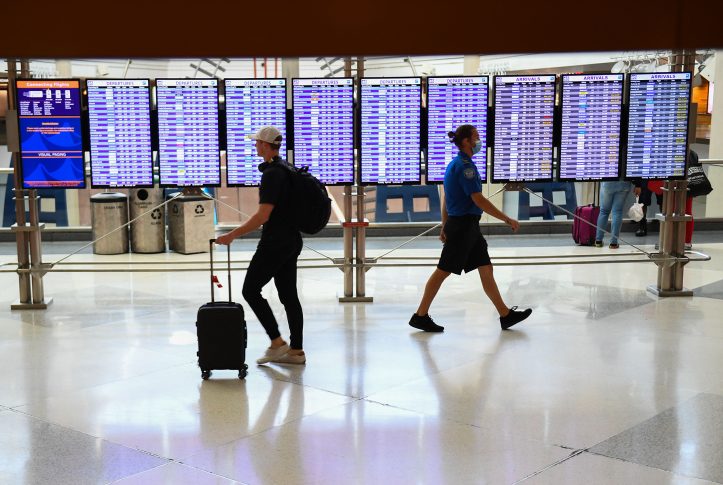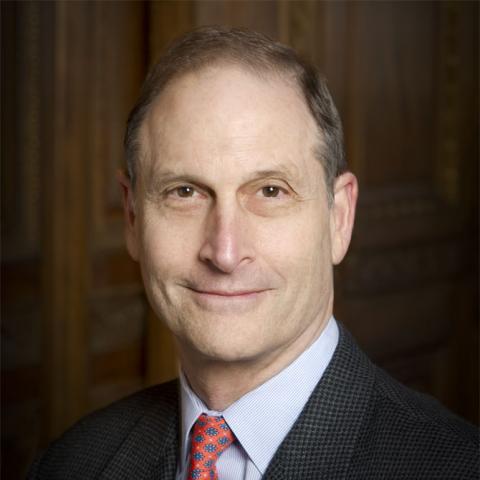A recent federal district court ruling in Florida raises one of the most profound issues facing any democracy: how to balance individual freedom and collective responsibility. The ultimate resolution could determine whether we will be able to protect ourselves against the most dire biological threats to our nation, and indeed, to our species.
In the Florida decision, a federal judge determined that the Centers for Disease Control and Prevention (CDC) lacks the authority to regulate the use of masks on airplanes, trains, and buses. In an accompanying To the Point post, Tim Jost unpacks the legal rationale — or lack thereof — for the judge’s decision. Here I examine some of the deeper issues at stake.
Many Americans are ready to move on from the pandemic. They believe they should be free again to live their lives as they see fit. “Enough is enough” is the rallying cry. And if they inadvertently spread COVID, well, with vaccinations and medications, it’s no worse than a cold, right?
Yet here is the rub. For the immunocompromised, the chronically ill, children under age 5 (who cannot yet be vaccinated), COVID remains potentially fatal, or capable of inflicting lasting health damage, including the chronic symptoms associated with long COVID. Even among healthy, vaccinated individuals, there remains enormous uncertainty about the risk and long-term consequences of long COVID.
Unmasking in the confined spaces of planes, trains, and buses has meaningful consequences for others. We face the inevitable questions that all free societies must constantly juggle: Where does my responsibility for your welfare end? How much of my freedom do I have to surrender to protect people I don’t even know?
Humans have a lot of trouble resolving these issues without the help of a legitimate governing authority. Absent such authority, we end up with escalating conflicts that spiral into violence and chaos inimical to peace and prosperity. That is why democracies need governments that set and enforce rule, with the consent of the governed.
The federal court in Florida voided the federal government’s authority to set and enforce such rules with respect to pandemic illness. As Tim Jost suggests, current statutes provide the U.S. Public Health Service broad authority to protect the public from infectious illness. The court ruled, however, that in its opinion, that authority was not sufficient. It is hard to see that ruling as anything other than a direct attack on the very right of government to set rules that balance individual freedom and collective responsibility when it comes to pandemic illness.
One may argue that the way to deal with this judicial opinion is for Congress to pass a law saying that the Public Health Service, of which the CDC is a part, does have the authority to regulate the use of masks on public transportation. But let’s probe the implications of this approach.
It means that our fractious national legislature would have to directly and specifically authorize every decision made by public health authorities to control the spread of a vicious, constantly evolving infection. To borrow a phrase, would that be any way to run a railroad? Would we really want lay legislators writing detailed rules for controlling the spread of infections rampaging through the country? Isn’t that why we hire skilled professionals and empower them to make decisions, with oversight from an elected president and representatives?
The coronavirus has now killed more Americans in two years than all our wars combined. Given the frequency with which novel viruses jump from animals to humans and then spread worldwide in mere weeks, it is a matter of time until another dangerous microbe bursts onto the scene. The federal district court ruling would render us virtually defenseless against this threat. We should also keep in mind that as miraculous as the development of COVID vaccines has been, there are many viruses — like HIV — that have defied decades of effort to craft an effective jab. We got lucky this time. The cost of the next pandemic could easily be many times higher than COVID-19 has been. In the late 14th century, bubonic plague killed one-third of the people on earth.
The issues underlying the federal court ruling in Florida could not be more profound. Its outcome on appeal could determine whether the great American democratic experiment can survive.




